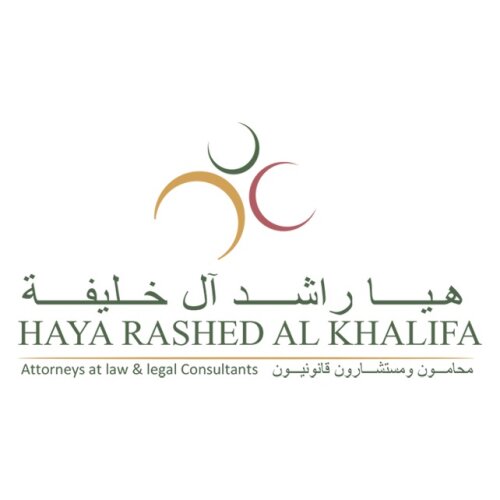Best Trusts Lawyers in Manama
Share your needs with us, get contacted by law firms.
Free. Takes 2 min.
List of the best lawyers in Manama, Bahrain
About Trusts Law in Manama, Bahrain
Trusts in Manama, Bahrain, are legal arrangements where assets are held by a trustee for the benefit of one or more beneficiaries. Trusts can be used for various purposes, such as estate planning, wealth protection, and charitable giving.
Why You May Need a Lawyer
You may need a lawyer specializing in Trusts in Manama, Bahrain, if you are looking to create a trust, amend an existing trust, deal with trust disputes, or ensure compliance with local laws and regulations regarding trusts.
Local Laws Overview
In Bahrain, trusts are governed by the Bahrain Trust Law, which provides a legal framework for the establishment and administration of trusts. The law outlines the duties and responsibilities of trustees, the rights of beneficiaries, and the requirements for creating a valid trust.
Frequently Asked Questions
1. What is a trust?
A trust is a legal arrangement where assets are held by a trustee on behalf of one or more beneficiaries.
2. Who can create a trust in Bahrain?
Any individual or legal entity can create a trust in Bahrain, subject to compliance with the requirements set out in the Bahrain Trust Law.
3. What are the key roles in a trust?
The key roles in a trust include the settlor (who creates the trust), the trustee (who manages the trust assets), and the beneficiaries (who benefit from the trust assets).
4. Can a trust be revoked or amended?
Depending on the terms of the trust deed and the Bahrain Trust Law, a trust may be revocable or irrevocable, and may allow for amendments under certain circumstances.
5. What are the tax implications of a trust in Bahrain?
Trusts in Bahrain may have tax implications for both the trustees and beneficiaries, and it is advisable to seek guidance from a tax expert when setting up a trust.
6. How can disputes involving a trust be resolved?
Disputes involving a trust in Bahrain may be resolved through mediation, arbitration, or legal proceedings, depending on the nature of the dispute and the terms of the trust deed.
7. What are the reporting requirements for trustees in Bahrain?
Trustees in Bahrain are generally required to maintain accurate records of trust assets and transactions, and may have reporting requirements to regulatory authorities or beneficiaries.
8. Can a trust be used for charitable purposes in Bahrain?
Yes, trusts can be established for charitable purposes in Bahrain, subject to compliance with the relevant laws and regulations governing charitable trusts.
9. What are the benefits of creating a trust in Bahrain?
The benefits of creating a trust in Bahrain may include asset protection, estate planning, confidentiality, and flexibility in managing and distributing assets.
10. How can a lawyer help with trusts in Bahrain?
A lawyer specializing in trusts in Bahrain can provide legal advice on creating, amending, and administering trusts, as well as represent clients in trust-related disputes or litigation.
Additional Resources
For more information on trusts in Bahrain, you may consider contacting the Bahrain Ministry of Justice, the Bahrain Chamber for Dispute Resolution, or local law firms specializing in trusts and estates.
Next Steps
If you require legal assistance with trusts in Manama, Bahrain, it is advisable to consult with a qualified lawyer specializing in trusts to discuss your specific needs and explore available options for establishing or managing a trust.
Lawzana helps you find the best lawyers and law firms in Manama through a curated and pre-screened list of qualified legal professionals. Our platform offers rankings and detailed profiles of attorneys and law firms, allowing you to compare based on practice areas, including Trusts, experience, and client feedback.
Each profile includes a description of the firm's areas of practice, client reviews, team members and partners, year of establishment, spoken languages, office locations, contact information, social media presence, and any published articles or resources. Most firms on our platform speak English and are experienced in both local and international legal matters.
Get a quote from top-rated law firms in Manama, Bahrain — quickly, securely, and without unnecessary hassle.
Disclaimer:
The information provided on this page is for general informational purposes only and does not constitute legal advice. While we strive to ensure the accuracy and relevance of the content, legal information may change over time, and interpretations of the law can vary. You should always consult with a qualified legal professional for advice specific to your situation.
We disclaim all liability for actions taken or not taken based on the content of this page. If you believe any information is incorrect or outdated, please contact us, and we will review and update it where appropriate.









